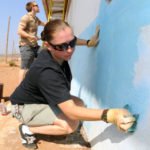How to Write the University of Washington Essays 2023-2024
The University of Washington has two supplemental essays that are required for all applicants, and one optional, “additional information” prompt. While we typically encourage students to respond to any optional prompt, this one is actually optional, as you should only respond if there truly are unusual circumstances that have impacted your high school career. If you are applying to UW’s Honors Program, you will also have to write an additional essay.
UW is one of the top public universities in the country, with elite STEM programs and a location that offers unparalleled access to Amazon and Microsoft, among other influential companies, so you’ll want to make sure your essays truly shine. In this post, we’ll break down how to brainstorm for and write each one, so you can be sure you’re putting your best foot forward.
Read these University of Washington essay examples to inspire your writing.
University of Washington Prompts
All Applicants
Prompt 1: Tell a story from your life, describing an experience that either demonstrates your character or helped to shape it. (650 words)
Prompt 2: Our families and communities often define us and our individual worlds. Community might refer to your cultural group, extended family, religious group, neighborhood or school, sports team or club, co-workers, etc. Describe the world you come from and how you, as a product of it, might add to the diversity of the UW. (300 words)
Prompt 3 (optional): You are not required to write anything in this section, but you may include additional information if something has particular significance to you. For example, you may use this space if:
- You have experienced personal hardships in attaining your education
- Your activities have been limited because of work or family obligations
- You have experienced unusual limitations or opportunities unique to the schools you attended. (200 words)
UW Interdisciplinary Honors Program Applicants
We want to understand your desire to learn new things and to push your education outside of the areas of learning that you are most familiar with. Tell us why this type of learning interests you and which subjects you’re excited to explore in college. (450 words)
All Applicants, Prompt 1
Tell a story from your life, describing an experience that either demonstrates your character or helped to shape it. (650 words)
This prompt is the first of the five options on the Coalition Application and is purposefully phrased nebulously to allow for a wide range of responses. You can relay any experience that reflects or shaped who you are.
To start, examine your many identities, and choose one that you want to highlight. All experiences are valid, whether they are traditional or unconventional. Focus on the things that make you different from others, and reflect on how they shaped you as a person. Remember that this is your main college essay, so be sure to pick an experience that was integral to your growth throughout high school.
This is a good chance to tell the story behind any major extracurriculars on your activity list. For example, you might write “debate team captain” as an extracurricular, but this essay is where you can recount the grit and dedication it took for you to reach that position, as you once were extremely shy. You can also use this space to explore identities that don’t appear elsewhere on your application, such as your role within your family. For example, you can write about how you tutor your younger brother in math, and how watching his face light up after understanding a new concept sparked your love of teaching.
A common theme across all college essays is “show, don’t tell.” This phrase is thrown around frequently, but is easier said than done. A few things to keep in mind when showing rather than telling are vividness and authenticity, which can be created by invoking imagery and specific details. For example, rather than saying “I like tennis and the game has always fascinated me,” try conjuring an image in the reader’s mind such as “At the start of my first official match, I gripped my trusted red racquet tightly, swaying ever so slightly from foot to foot in the ‘ready’ stance that I had practiced for years.” While the first response may be true, it is generic and can apply to any tennis aficionado. The latter response better authenticates your experiences than the former, and demonstrates your sincerity to readers.
All Applicants, Prompt 2
Our families and communities often define us and our individual worlds. Community might refer to your cultural group, extended family, religious group, neighborhood or school, sports team or club, co-workers, etc. Describe the world you come from and how you, as a product of it, might add to the diversity of the UW. (300 words)
This question serves two purposes: it gives UW an opportunity to learn more about how you developed your values, and it allows them to consider how you might interact with others on campus. It is easy to get mired in focusing on describing your community, but remember, UW wants to learn about you through seeing how your community impacted you. Use a description of your community to frame your essay, but always remind yourself to connect the story back to how it changed you. Once you have framed the essay with a description of who you have become as a result of your community’s impact, be sure to extend this thread to your potential future influence on UW.
There are several ways to interpret community. You could interpret it in the literal sense by explaining how your hometown and family have guided your ambitions. For example, maybe growing up on your family’s farm inspired your appreciation for agriculture and working with your hands. You hope to share this appreciation with other students by working on the UW farm and organizing workshops where students can learn how to plant their own flowers or herbs.
Or, perhaps the community you want to highlight is less conventional, such as the coffeeshop you work at. You could discuss how your coworkers are from all walks of life, and how you’ve befriended a retired older couple that picks up weekend shifts. They offer you advice based on their many life experiences, showing you the importance of having an older mentor. This makes you want to join the Big Brothers Big Sisters chapter at UW.
Regardless of what your community is, be sure to highlight how you’ll contribute to UW’s diversity, whether that’s through your perspective, actions, ideas, cultural traditions, etc.
All Applicants, Prompt 3 (optional)
You are not required to write anything in this section, but you may include additional information if something has particular significance to you. For example, you may use this space if:
-
You have experienced personal hardships in attaining your education
-
Your activities have been limited because of work or family obligations
-
You have experienced unusual limitations or opportunities unique to the schools you attended. (200 words)
This portion of the application is optional, and while we recommend that you fill out most “optional” essays, this space is truly optional. If you don’t have any unusual circumstances, you can leave it blank without penalty. If feel that the parameters apply to you, you should fill this section out. This is your chance to explain anything that hasn’t been addressed in other parts of your application. Since the maximum is 200 words and the prompt is straightforward, you can (and should) also be totally straightforward in your response, rather than painting a picture with vivid imagery.
For the first prompt, an example of a response could be:
“In the sophomore year of high school, my dad was diagnosed with cancer, and it profoundly affected multiple areas of my life, including my academic performance. For that reason, there is a significant dip in my grades in the spring semester of that year.”
For the second:
“Because my parents own a small restaurant, it is often my responsibility to watch my younger siblings while they are working, and even help out by doing the dishes or bussing tables in my free time. For that reason, I was unable to join as many extracurriculars as my after school time went towards helping ensure the family restaurant was running smoothly.”
For the last prompt, you can briefly state school-related limitations or opportunities, like if your school did not have an AP or IB program, or if it did have a special internship program that you participated in. Keep in mind that some universities designate admissions officers to research your region and know what programs your school has or doesn’t have – this might be something you want to look into before filling out this section. However, you might want to fill out this section if the school you’re applying to does not have regional admissions officers.
If there is a specific school program or opportunity that you wish to mention, we recommend doing so via your activity list or one of your essays, rather than in this short, 200-word window. If you find that you don’t have space in the rest of your application, then this section is fine.
UW Interdisciplinary Honors Program Applicants
Please reflect and respond to the following question, and in doing so explain your interest in the UW Interdisciplinary Honors Program. What is interdisciplinary learning and why is it important to you? (300 words)
While you might be tempted to approach this prompt in the way you would approach a traditional “Why This Major?” essay, hold on for a second and reread the prompt. Rather than being asked why you are pursuing a particular major or area of study, you’re being asked about why learning new things interests you and which “subjects you’re excited to explore in college”.
Although you will likely be most excited to study the topics relevant to your major, this prompt specifically requests that you “push…outside of the areas of learning that you are most familiar with.” UW admissions officers are hoping to acquire a more comprehensive understanding of your intellectual potential, so your response should focus on a topic other than your intended major.
However, be sure to discuss an area of interest that has some alignment with the rest of your application, so that it doesn’t feel totally out-of-the-blue. If you’ve never been a part of any music-related classes or activities, writing about your passion for songwriting may feel a little disjointed.
Of course, our identities are complicated, but remember that the people reading your applications don’t know you outside of what you tell them, which means it’s crucial that the various pieces of your application come together to form a cohesive unit. Otherwise, your readers may not understand who exactly you are.
To give an example of something you could write about, maybe your intended major is biology, but you’ve also studied Latin throughout high school. You could focus your essay on how you hope to read ancient and medieval scientific texts, to learn more about how human understanding of the world around us has evolved.
Another approach to this essay could be identifying a topic that has nothing to do with biology but ties into some aspect(s) of your identity. Perhaps growing up in a multilingual, bi-racial household, with parents from South America and East Asia, meant you were constantly participating in family gatherings and celebrating holidays with very different cultural contexts. In college, you hope to study anthropology and sociology, even though you have no direct experience with either of those subjects, so that you can not only understand your own identity better, but also be better prepared to engage with those who have their own complicated stories.
Note that the prompt asks you to not only describe one of your academic interests, but also explain “why this type of learning interests you,” with regards to interdisciplinary learning. To answer this part of the prompt, you’ll want to identify one or two of your goals for college, and how you see interdisciplinary learning in particular helping you reach them.
The second example given above already does this, as the student explains that they want to be able to better communicate with people from cultural backgrounds that differ from their own, and they clearly connect that goal to the subjects they are focusing on.
The student in the first example is starting to get to this component of their essay, but needs a little more personal connection. They could get that by, for example, writing about how they’re not sure how they can best utilize their skills within the vast field of biology–as a doctor, researcher, educator, or something else–and throughout college, hopefully exploring the history of the subject will give them a clearer idea of the right path ahead.
Here are some finals tips for you to consider when responding to this essay:
- 450 words is on the long side for a supplemental essay, so take the time to share an anecdote that integrates your interest in a specific topic with your background, personal values, and overall love of learning, rather than just stating your points in a direct, factual way
- Explain why the University of Washington specifically can help you reach your goals, by referencing a few course offerings, campus organizations, research opportunities, and so on that align with your interests
- Not to sound cheesy, but have fun! As we noted at the beginning of this breakdown, you have more freedom here than in a “Why Major?” essay, so highlight your curiosity, excitement, and any quirky connection you have to your topic, rather than worrying about whether or not you’ve taken enough APs or done enough extracurriculars related to your topic
Where to Get Your University of Washington Essays Edited
Do you want feedback on your UW essays? After rereading your essays countless times, it can be difficult to evaluate your writing objectively. That’s why we created our free Peer Essay Review tool, where you can get a free review of your essay from another student. You can also improve your own writing skills by reviewing other students’ essays.
If you want a college admissions expert to review your essay, advisors on CollegeVine have helped students refine their writing and submit successful applications to top schools. Find the right advisor for you to improve your chances of getting into your dream school!





